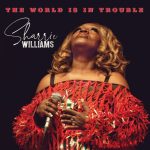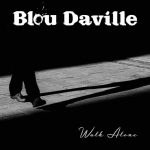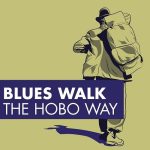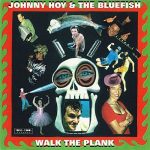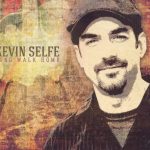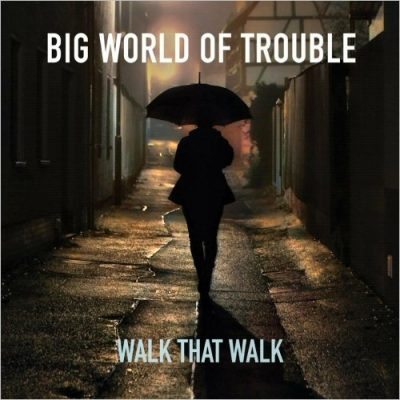
Artist: Walk That Walk
Album: Big World Of Trouble
Year Of Release: 2023
Format: FLAC (tracks)
Tracklist:
1. Roof Got A Hole (4:56)
2. Boogie Chillen (4:37)
3. Big World Of Trouble (4:38)
4. Get Up Get Out (3:45)
5. See Poppa C (4:58)
6. Mississippi Jukin’ (4:48)
7. You Can’t Stay Here (3:29)
8. Still A Fool (3:38)
9. Good Woman (3:15)
Walk That Walk has served as the Boston-area touring band for two Rock ‘n’ Roll Hall-of-Fame inductees — Bo Diddley and Johnnie Johnson, the co-writer and pianist in Chuck Berry’s legendary combo.
As one of the premier bands on the Boston music scene – Walk That Walk is an east-coast phenomenon, but its Midwestern roots run deep. The group’s material and performances are influenced by the fertile sounds of Detroit and Chicago, where the electric blues were ignited in the 1950s. The group has been on the scene for many years, beginning their long-standing testimony back in 1992.
Motown native and guitarist/vocalist Chuck DeSnyder was a teen rocker, winning high school talent contests and leading successful R&B-tinged bands throughout college and for several years in New York City. But when he moved to Boston, his “blues sickness” could no longer be suppressed. Jam sessions in DeSnyder’s basement soon attracted Randi Laak on drums.
Originally from Minnesota, Laak’s early virtuosity won him a spot on the nationally-touring New England Youth Ensemble. His orchestral credits include appearances at Carnegie Hall and the Kennedy Center, and he is currently on the faculty of Atlantic Union College teaching percussion.
A classical musician playing the blues may seem incongruous, but for all the purists out there who think musicians should stay in their culturally-correct genres, Laak has this to say: “That would be like telling Yo Yo Ma he shouldn’t play classical music because he isn’t European, or Pavarotti he shouldn’t sing Broadway show tunes because he’s an Italian opera singer. I play the blues because it is the most primal, emotional music there is. Its raw power and directness speaks volumes, whether it’s pain, fear, love, sadness, or joy.”
On bass, Mike Barrows draws upon wide-ranging influences in the blues idiom, as well as funk, rock, and R&B. His rhythmic feel and complementary style on bass provides the glue that holds the groove together for the Walk That Walk sound.
James Waldron joined the group back in 2000, contributing vocal work and blowing a mean blues harp. Waldron has traveled extensively and played with all varieties of musicians, from Stockholm-based jazz bands to house Reggae bands in Jamaica. Influenced early by national blues-rock artists J. Geils and Aerosmith, he eventually began emulating Chicago-style masters of the harp Little and Big Walter. Two years of study with Muddy Waters harmonica sideman, New York’s Bob Shatkin, expanded his abilities to include country and delta blues harp technique, as well as percussive rhythm-based Chicago blues. Waldron has been fortunate to meet and sometimes accompany longtime masters of the genre, Muddy Waters, Matt Guitar Murphy, J.B.Hutto, Jerry Portnoy, Bruce Marshall, KD Bell, Toni Lynn Washington, and James Montgomery.
In 1992 – the year the band formed – Walk That Walk made the finals of the Battle of the Blues Bands, sponsored by the Boston Blues Society. Their growing reputation as electrifying performers gained them entry into the finest Boston-area clubs including Harper’s Ferry, Johnny D’s Uptown Lounge, House of Blues, The Yardrock Blues Club, and others. As DeSnyder notes, “If you’re not passionate and high energy when you perform, people will head for the exits.” These days, the only reason people are near the exits at Walk That Walk shows is because there’s nowhere else to stand.
Early in 1995, the group was approached by Shiretown Records to do a CD project showcasing the band’s remarkable original compositions. While staying true to the spirit of the “old masters”, (the band cites Willie Dixon, Robert Johnson, Son House, Muddy Waters, and others) Walk That Walk managed to renew the traditional form with a collection of witty, gritty tunes for their self-titled debut CD. Over the years, the group has released more studio recordings – “No Thinking Allowed”, “When Blues Come ‘Round”, “Big World of Trouble”, “Low Time” and “The Studio 9b Sessions”.
What’s next for Walk That Walk? More of the same, only better. As DeSnyder says, the most important thing for this band to do is to “write brilliant songs and perform them like men who sold their souls at the crossroads.”


